|
Last year had some amazing highs, but I had some trying health and other struggles at times, and it is always hard to write in a vital congregational placement (especially with the demands of my pioneering ministry) so I'm very grateful for the encouragement and patience of Elenie Poulos and Kate Gleeson (co-editors) in enabling me to contribute an article to a small collection of essays on 'Religion and Politics after marriage equality: contemporary challenges in religious freedom'. My essay (which can be accessed here) built out of the tough experience of some of us, focuses on the marginalisation of transgender people and queer people of faith in queer activism and mainstream Australian churches during and after the Australian marriage-equality plebiscite. I entitled it: 'Climbing out from being thrown under the bus: queer faith futures in a transphobic political world'.
0 Comments
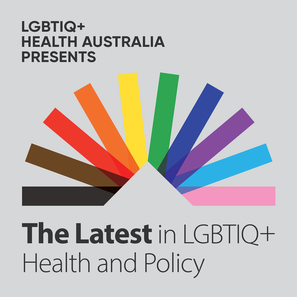 It was good to share recently on The Latest in LGBTIQ+ Health and Policy - a podcast that brings the health and wellbeing hot topic discussions that matter to LGBTIQ+ people: Our conversation explored the intersection between faith and LGBTQ+ community, the changes happening within the church, overcoming barriers as a trans woman, and my 30 year relationship with wife Penny.' This podcast was produced by JOY Media – Australia’s Rainbow Community Media Organisation. For more information about JOYs services, visit joy.org.au/services Podcast: Play in new window | Download (Duration: 25:16 — 34.7MB) Subscribe or Follow Us: Apple Podcasts | Google Podcasts | Spotify | RSS Budyeri Gamaruwa – greetings in Gadigal. I acknowledge elders, past and present, and all First Nations people here. For before these steps on which we stand existed, this was Aboriginal land. It is, and always will be, Aboriginal land. For true identity, love and self-determination are not ceded by the oppressions of others. That is at the heart of our simple act of solidarity today.
My name is Josephine McDonnell Inkpin. I am a transgender woman and a queer person of faith. including being Minister here at Pitt Street Uniting Church. So I thank you all for coming this morning. For gender diverse people and queer people of faith are very vulnerable right now. We are not surprised by current attacks. In fact, we trans people have been warning about them for ages, but typically our concerns have given little priority -– just as our calls not to issue a visa to an UK rabble-rouser could have helped avoid Nazis on the streets of Melbourne and feeding right wing forces across the country. Similarly, we queer Christians have called for our voices to be heard properly but, with notable exceptions, many key Christian leaders and some queer people have given little priority to our concerns – just as our calls to help us address the now visible Christian Right in Sydney could have helped avoid the violence on Sydney streets. This - must – change: both for the sake of trans people and queer people of faith and for us all. For an attack on any of us is an attack on all of us. Our attackers think that trans people and queer Christians are easy and weak targets. Well, we are so not weak in spirit, but we are not as strong we could be if we had greater voice and empowerment. This simple solidarity photograph is therefore a declaration of that intent... 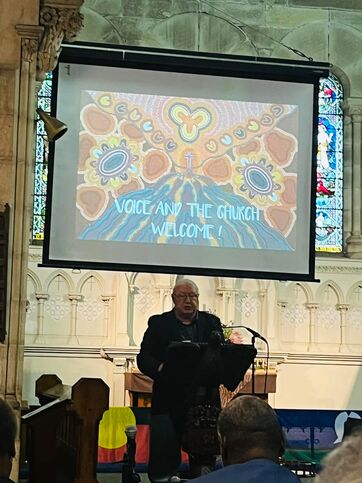 Among the several fine contributions to last Saturday’s ‘Voice and the Church’ gathering was that by the Revd Dr Rangi Nicholson, Assistant Priest of Rangiatea Church, the oldest Māori Anglican Church in Aotearoa, and author of ‘Treaty, Church and Nation’, reminding us that though our own struggles are specific they are also common and enriched by solidarity with others across the globe. He spoke powerfully of what needs doing from Māori and Anglican experience in Aotearoa New Zealand - including how, without meaningful resources empowerment is limited, and how the Church needs to be held accountable for benefitting from oppression. There is so much, he rightly identified, that the Church needs to do in terms of recognition, repentance, restitution and reparation. His three future hopes are pertinent to struggles in Australia too, and beyond: 1. More commitment by the Church to truth telling and ‘the whole story’ - with repentance and reparations 2. the Church needs to put its own house in order re authentic partnership whilst offering constructive critique of Government’s commitment to the UN rights of Indigenous People, reimagining a more just Church and nation. 3. the need for the Church to contribute boldly and with love to a new constitution - to visioning and values clarification for the future of the country - as part of restorative justice As he says: Whilst Treaty, in the experience of Aotearoa, can be a ‘sacred covenant’ allowing new life and renewed attention, there needs to be much more - for: ‘Restorative justice needs to become a priority’ - led with young people... 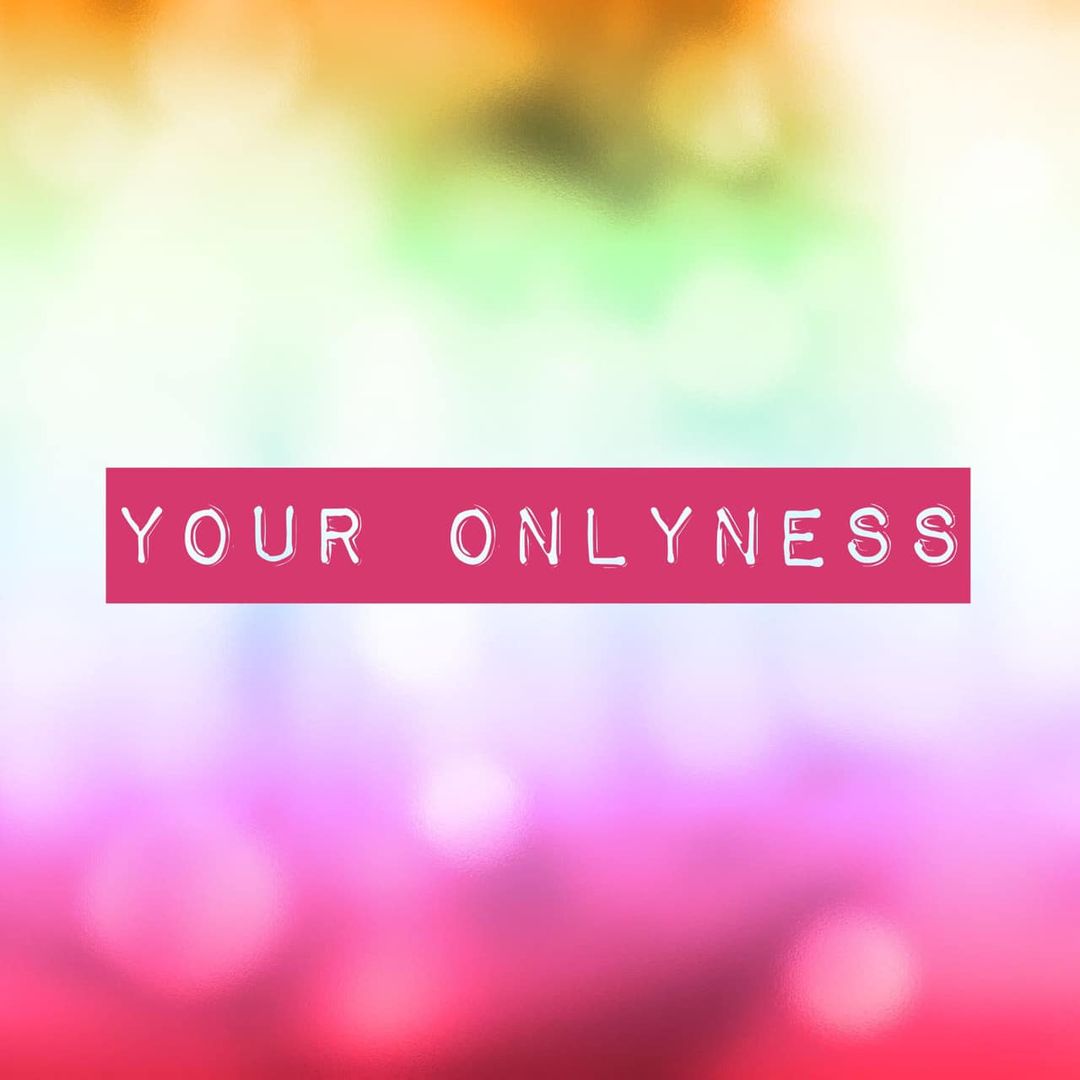 One interesting contemporary term I’ve found helpful recently is ‘onlyness’ - in both its negative and positive aspects. ‘Onlyness’ certainly speaks to my experience both practically (in negotiating the deafening demands of ‘sameness’ and ‘togetherness’ in world and church) and spiritually (in seeking sources, connections and pathways to flourish). Negatively, as this week’s inaugural LGBTIQ+ Leadership Summit in Sydney highlights in its introduction, despite significant advances (especially for L & G folk - T & I have a little more to see) queer ‘onlyness’ continues to be an issue in business and public life (even without including church spaces) and it is still hard for so many of us in simply pursuing our careers and vocations: ‘A 2020 McKinsey report identified that LGBTIQ+ staff are more likely to encounter microaggressions, experience sexual harassment (especially women), and become disengaged within their organisation due to “onlyness”. Despite the overwhelming ethical and financial business case for LGBTIQ+ inclusion, it simply hasn’t happened. It is reported too often that LGBTIQ+ staff are excluded from promotion, are overlooked by superiors, and concerns regarding their gender and sexual orientation are dismissed.’ Being queer in the Church (even more tolerating and passively ‘inclusive’ spaces) sometimes feels like such ‘onlyness’ with bells on (sometimes the sort of bells tolled perhaps to warn people of the plague?). In the best of our mainstream Churches the obsessions with institutional ‘unity’, limited ‘brand’ identity, and not ‘rocking the boat’ also militate against receiving the gifts of ‘onlyness’ - even though they are an essential part not only of the continuing features of spiritual health in Churches but are also pathways forward if they were fully received. The reality is that ‘onlyness’, spiritually speaking and in many manifestations, has always been essential to positive life and change in secular and faith spaces. A key saving grace of both my native C of E (Anglican), Reformed ‘liberty of conscience’ and wider Christian tradition has always been those who have lived into and out of their ‘onlyness’ - for it is from the depths of spirit, inner truth, our authentic dreams and stirrings, that true flourishing comes. We are most certainly created to be social creatures, and our onlyness bears fruit and is enriched in mutual relationship with others, especially where they seek to honour and share their own ‘onlyness’. Yet so much remains, and rises afresh, to work against this - not least sadly in so many Church spaces - as organisations, communities and individuals settle for conformity and complacency (as well as coercion at times), resting on outdated assumptions and harmful stereotypes, unchanging inherited or ‘functional’ structures, and suspicion, or worse, of ‘onlyness’ (even in some faith traditions which speak of ‘conscience’ and being ‘prophetic’). The LGBTIQ+ Leadership Summit puts it clearly: ‘LGBTIQ+ leaders have a strong legacy of driving positive change – even in the most difficult circumstances. In the 2020s, an era of the socially aware and responsible consumer, large organisations cannot afford to merely provide lip service to LGBTIQ+ inclusion.’ The same might be said of other leaders among us who lead from out of their ‘onlyness’ - not least the extraordinary First Nations leaders who have walked with, inspired, and strengthened me in singing new life in faith spaces (and without whom I’d have given up long ago) Like ‘onlyness’ however, such people not only need honouring, but supporting and releasing into greater life.  I continue to be flabbergasted (that’s the polite way of putting it) by the attempts of Churches to ‘apologise’ to LGBTIQ+ people whilst continuing to ignore our voices, maintaining shame, and hurting us afresh. The latest astonishing ‘apology’ is by the General Synod of the Anglican Church in Australia - actually ’deploring’ activity which it had itself just demonstrated. NO - this kind of ‘apology’ is not acceptable and represents a mockery of the deep understanding of costly repentance and reconciliation in the Christian tradition. Meanwhile, the Uniting Church - with more credibility but with significant holes in its LGBTIQ+ ‘inclusion’, including a current low level of trans awareness and engagement - has also been pursuing an apology process. This is a much better concept but one in which no transgender people have been included in the ‘apology’ group! (so there’s a first apology to make) A few obvious starters therefore for such ventures: * ‘Nothing about us without us’ * Cheap grace betrays the Gospel * Reparations matter 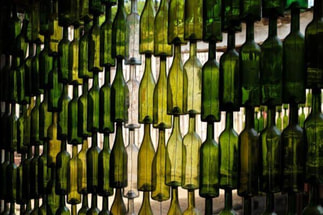 Should any green ordinands (aka ministry formation students) ‘fall’, where do they go? I sent thankful video greetings across the globe this weekend to my best man, at my wedding, celebrating a significant birthday landmark - cheers Chris - and it set me reflecting on what has happened to my immediate generation of would-be clergy… It was a deeply poignant yet beautiful Midnight Mass tonight in St Thomas' Church in Market Rasen. I had indeed had a yearning for one more such communion in the cold and dark and the depths of the symbolism and mystery it reflects - but not for years to come and not like this. The nave altar stood precisely where my parents’ coffins had been just two days before, the mood and singing was subdued by masks and the pandemic, numbers reduced and the liturgy unexuberant. Yet the magic, the miracle, persists - light in the very darkness, glory in the mire and sorrow, enfleshed spirit in our mixed up midst - and eucharistic participation on this, of all occasions, remains so truly special.
It was hard to move away into the night, for the last time to leave the church of my childhood and early formation, to step along the pathway into the marketplace one more time. The main street seemed even more deserted than ever as I made my return - even the wandering drunk had been spirited away. Walking the last part in silent darkness between the two cemeteries for the final time brought back the fullness of so many memories as well as profound emptiness and grief. For in the depths of our factual and metaphorical winters love can be reborn - just as a new dawn broke after the winter solstice on the morning of my parents’ funeral. T.S.Eliot was partly right. ‘A cold coming’ it has indeed been - ‘just the worst time of year for a journey… the very dead of winter’, even without the Omicron wave and renewed distance and desolation - but we do not need to be ‘glad of another death.’ Birth, life and love happens always - divinity in the vulnerability of our flesh: Incarnation in our dark. This is probably my favourite view of St Thomas' Church - where I grew up, was confirmed, sang in the choir and was an altar server. Some 800 years old, it has offered sacred community, celebration and comfort through good times and bad (including many plagues, political horrors and upheavals, Reformation, revolutions and renewals, and contemporary changes). It was probably originally named not for the early disciple but after the martyr Thomas a Becket - politically murdered for standing up for (genuine) religious freedom against tyranny. So it knows how to adapt, survive and still provide space for divine flourishing. It will see out COVID-19 and maybe even the latest convulsions of the Church of England - some things are so much deeper than viruses and institutional failings. It has also held and helped grace so many personal family joys and sorrows - for what it ultimately stands for will always prevail 🙂 #ourlittletown
|
AuthorJo Inkpin is an Anglican priest serving as Minister of Pitt St Uniting Church in Sydney, a trans woman, theologian & justice activist. These are some of my reflections on life, spirit, and the search for peace, justice & sustainable creation. Archives
July 2024
Categories
All
|
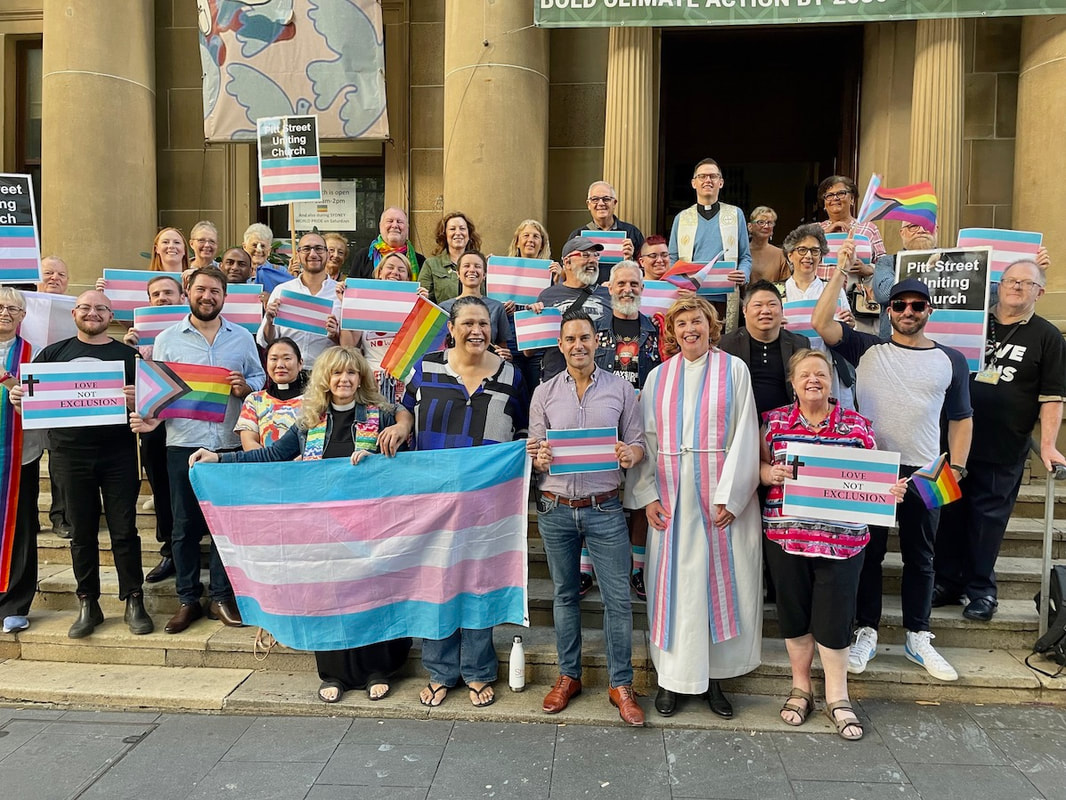
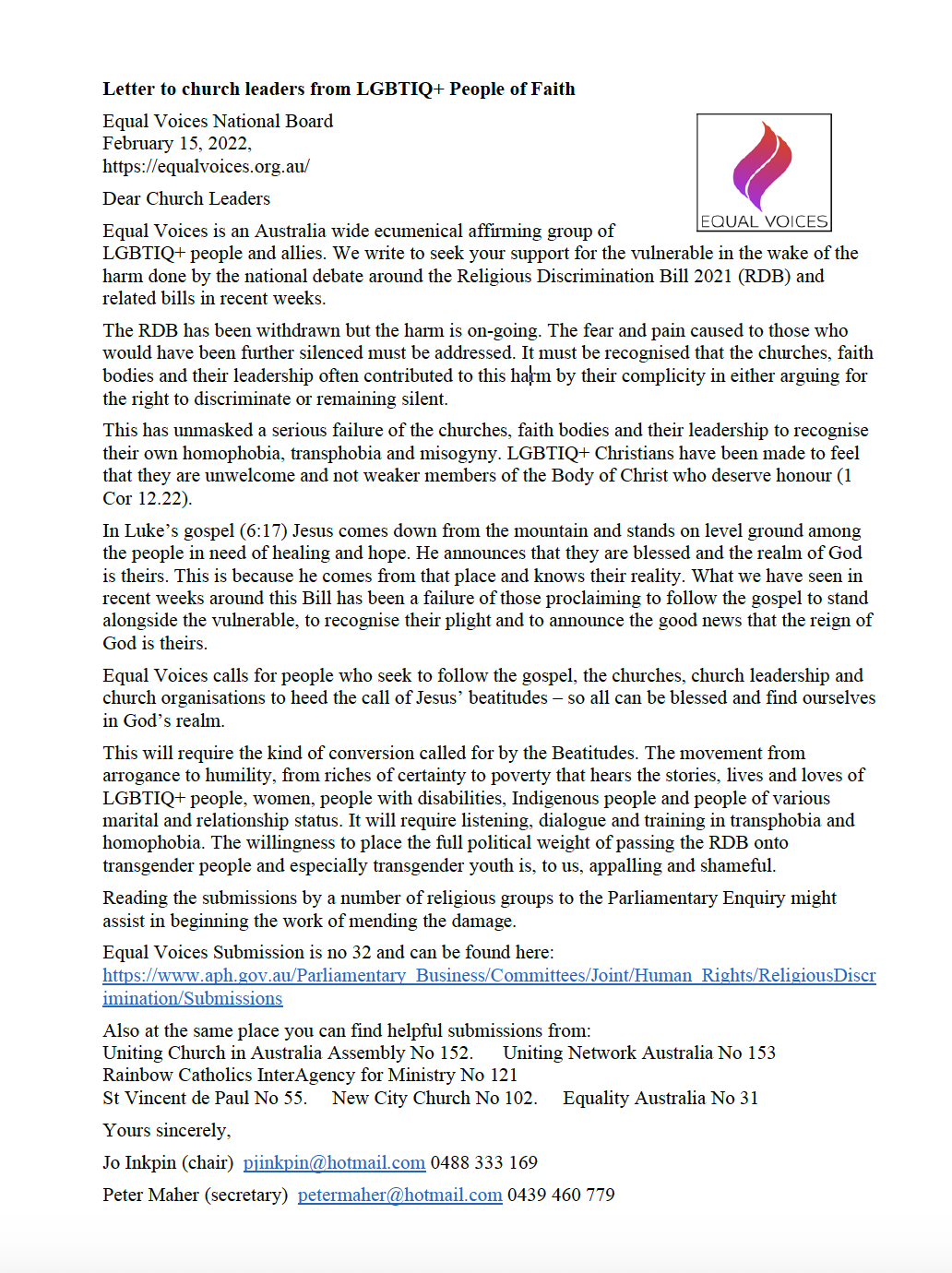
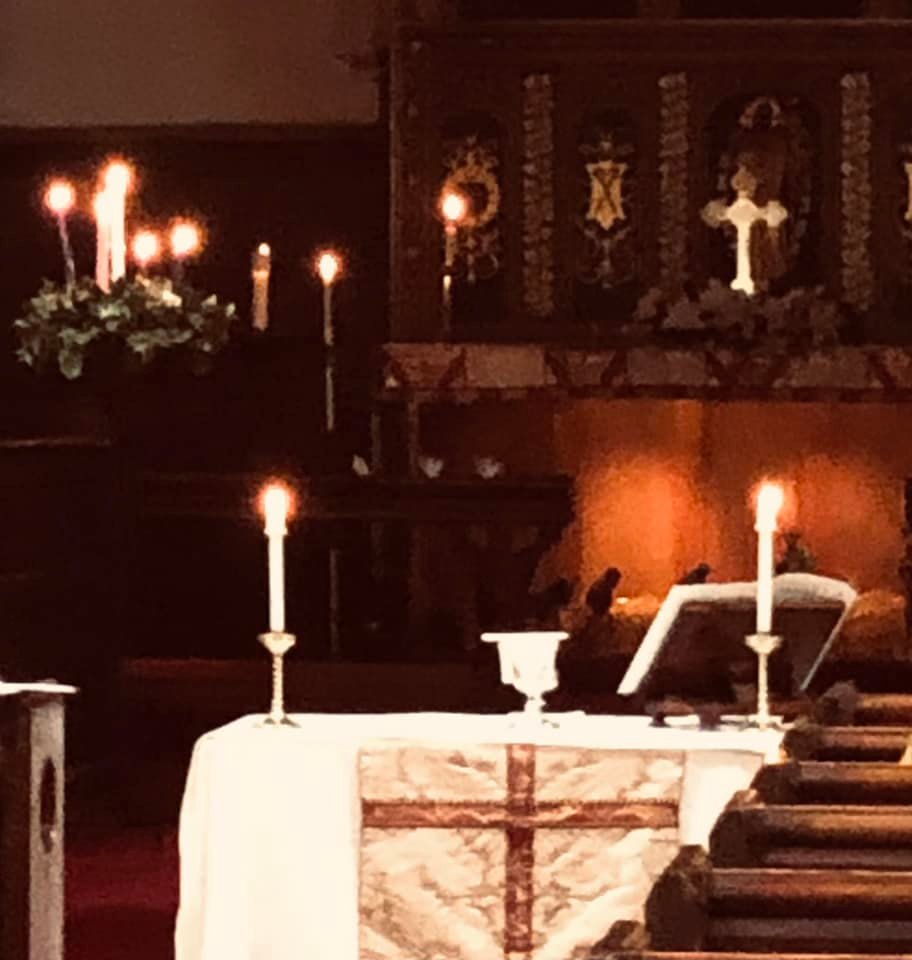
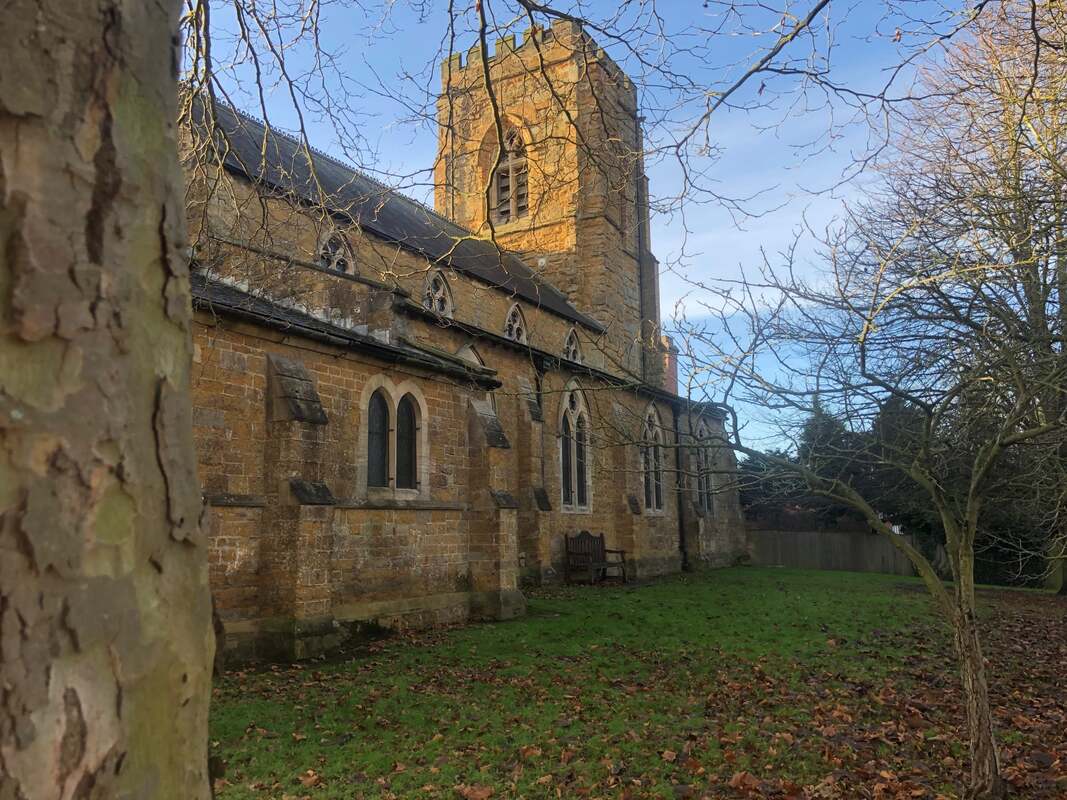
 RSS Feed
RSS Feed